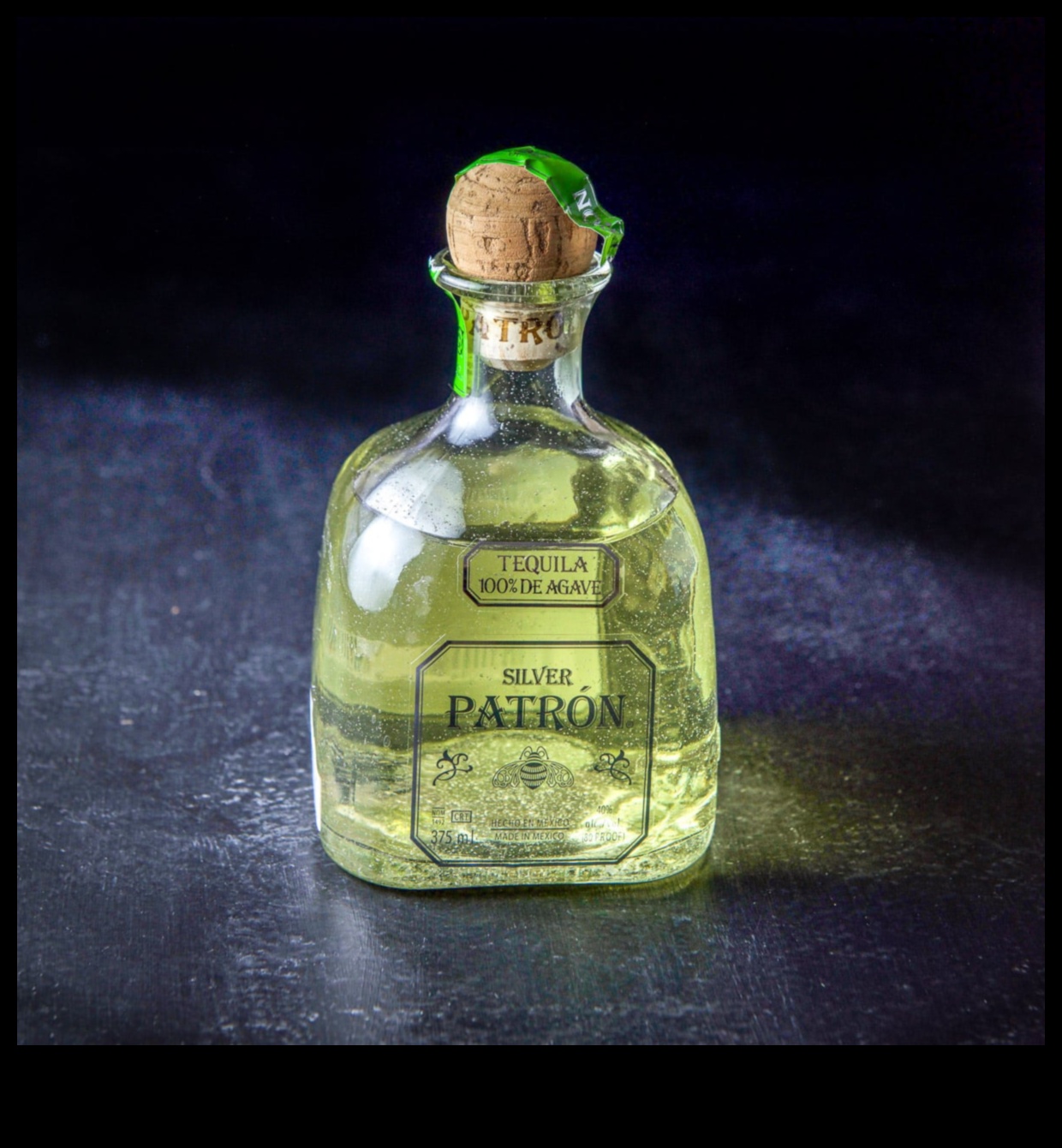
Tequila Time: Infusing Mexican Spirits into Your Cooking
Tequila is a distilled spirit made from the blue agave plant, which is native to Mexico. It has a complex flavor profile that can range from sweet and fruity to smoky and peppery. Tequila is often used in cocktails, but it can also be used in cooking to add a unique flavor to dishes.
Here are a few tips on how to use tequila in cooking:
- Use tequila in marinades for grilled meats, seafood, and vegetables.
- Add tequila to sauces for chicken, pork, and beef dishes.
- Stir a little tequila into soups and stews.
- Use tequila as a finishing touch for roasted meats, vegetables, and desserts.
Here are a few recipes that use tequila:
- Tequila Lime Grilled Shrimp Tacos
- Tequila Chicken Fajitas
- Chicken Tikka Masala with Tequila Cream Sauce
- Tequila Lime Chicken Soup
Tequila can also be used to make a variety of cocktails, such as margaritas, palomas, and daiquiris.
If you’re looking for a way to add a little Mexican flavor to your cooking, tequila is a great option. It’s versatile and can be used in a variety of dishes, from savory to sweet. So next time you’re in the kitchen, give tequila a try!
| Feature | Tequila | Mexican Food | Cooking with Alcohol | Mezcal | Agave |
|---|---|---|---|---|---|
| History | Tequila has a long and storied history dating back to the 16th century. | Mexican food has a rich history that dates back thousands of years. | Cooking with alcohol has been a tradition for centuries. | Mezcal is a distilled spirit made from the agave plant. | Agave is a genus of flowering plants in the family Asparagaceae. |
| Production | Tequila is produced by distilling the fermented juice of the blue agave plant. | Mexican food is typically made with fresh, seasonal ingredients. | Cooking with alcohol can add flavor and depth to dishes. | Mezcal is produced in a similar way to tequila, but it is made from different varieties of agave. | Agave plants are grown in a variety of climates around the world. |
| Varieties | There are two main types of tequila: 100% agave tequila and mixto tequila. | Mexican food is varied and includes dishes from all over the country. | There are many different ways to cook with alcohol, including infusing, flambéing, and poaching. | Mezcal comes in a variety of flavors, depending on the type of agave used. | Agave plants come in a variety of shapes and sizes. |
| Flavors and Aromas | Tequila has a range of flavors and aromas, depending on the type of agave used and the production methods. | Mexican food is known for its vibrant flavors and aromas, such as chili peppers, tomatoes, and cilantro. | Cooking with alcohol can add a variety of flavors and aromas to dishes, such as sweetness, smokiness, and bitterness. | Mezcal has a smoky, earthy flavor that is often compared to scotch whisky. | Agave plants have a sweet, floral flavor. |
| Cocktails | Tequila is a popular ingredient in cocktails, such as margaritas, palomas, and tequila sunrises. | Mexican food is often served with cocktails, such as margaritas and palomas. | Cooking with alcohol can be used to create delicious cocktails, such as the margarita, the daiquiri, and the mojito. | Mezcal is also used in cocktails, such as the mezcal margarita and the mezcal old fashioned. | Agave plants are used to make agave nectar, which is a popular sweetener in cocktails. |
| Pairings | Tequila pairs well with a variety of foods, such as seafood, grilled meats, and spicy dishes. | Mexican food pairs well with a variety of drinks, including beer, wine, and cocktails. | Cooking with alcohol can be used to create delicious pairings, such as grilled meats with a red wine reduction or seafood with a white wine sauce. | Mezcal pairs well with a variety of foods, such as seafood, grilled meats, and spicy dishes. | Agave nectar is a popular sweetener in cocktails and can be used to make a variety of desserts. |
| Health Benefits | Tequila has been linked to a number of health benefits, such as
Tequila Time: Infusing Mexican Spirits into Your CookingTequila is a distilled spirit made from the blue agave plant, which is native to Mexico. It has a complex flavor profile that can range from fruity and floral to smoky and earthy. Tequila is often used in cocktails, but it can also be used in cooking to add a unique flavor to dishes. Here are a few tips for using tequila in cooking:
Here are a few recipes that use tequila:
Tequila is a versatile spirit that can be used in a variety of dishes. By following these tips, you can easily add a touch of Mexican flair to your cooking. III. Tequila Agave VarietiesThere are more than 300 different types of agave plants, but only 10 are used to make tequila. The most common agave used for tequila is blue agave, which is native to the Tequila Valley in Jalisco, Mexico. Blue agave plants can take up to 12 years to mature before they are ready to be harvested. The other nine agave varieties used to make tequila are:
The different agave varieties used to make tequila give the spirit its unique flavor and aroma. Blue agave tequila is typically considered to be the smoothest and most flavorful type of tequila. Tequila made from other agave varieties can have a more vegetal or earthy flavor. The type of agave used to make tequila also affects the color of the spirit. Tequila made from blue agave is typically clear, while tequila made from other agave varieties can be amber or even black in color. IV. Tequila Flavors and AromasTequila has a wide range of flavors and aromas, depending on the type of agave used, the distillation process, and the aging process. Some of the most common flavors and aromas found in tequila include:
Tequila can also have a smoky flavor, if it has been aged in oak barrels. The flavors and aromas of tequila can vary significantly from one brand to another, so it is important to experiment to find the ones you enjoy the most. Tequila can be used in a variety of dishes, both sweet and savory. It can be used as a marinade for meats, fish, and vegetables, or it can be added to cocktails, sauces, and desserts. When using tequila in cooking, it is important to use a high-quality tequila, as the flavor will be more pronounced. Here are a few tips for using tequila in cooking:
Tequila is a versatile ingredient that can be used to add a unique flavor to your cooking. Experiment with different types of tequila and dishes to find the perfect combination for you. V. Tequila CocktailsTequila is a versatile spirit that can be used in a variety of cocktails. Here are a few of our favorites:
For more tequila cocktail recipes, check out our Tequila Cocktails Recipe Collection. (*5*) VI. Tequila PairingsTequila can be paired with a variety of foods, depending on its flavor profile. Lighter tequilas, such as blancos and reposados, are often paired with seafood, chicken, and pork. More complex tequilas, such as añejos and extra añejos, are often paired with red meat, game, and cheese. Here are some specific pairing suggestions:
When pairing tequila with food, it is important to consider the flavor profile of both the tequila and the food. Tequilas that are high in sweetness and fruitiness can be paired with foods that have similar flavors, such as grilled pineapple or mango salsa. Tequilas that are more earthy and smoky can be paired with foods that have similar flavors, such as grilled meats or roasted vegetables. Tequilas that are complex and well-rounded can be paired with a variety of foods, so you can experiment to find what you like best. Tequila Health BenefitsThere are a number of potential health benefits associated with tequila consumption, including:
However, it is important to note that these benefits are only associated with moderate tequila consumption. Drinking too much tequila can have negative consequences for your health, including weight gain, liver damage, and impaired judgment. If you are interested in reaping the potential health benefits of tequila, it is best to drink it in moderation and consult with your doctor before making any changes to your diet or lifestyle. Tequila Safety VIII. Tequila SafetyTequila is a distilled spirit made from the blue agave plant, and it is typically consumed in shot form. However, tequila can also be used in cooking, and it can add a unique flavor to a variety of dishes. When using tequila in cooking, it is important to be aware of the potential risks, and to take steps to minimize these risks. The main risk associated with using tequila in cooking is that it can be easily overconsumed. Tequila is a potent spirit, and it can be easy to drink too much of it if you are not careful. Drinking too much tequila can lead to a number of health problems, including alcohol poisoning, liver damage, and impaired judgment. To minimize the risk of overconsumption, it is important to measure your tequila carefully and to drink it slowly. It is also important to drink tequila with food, as this will help to slow down the absorption of alcohol into your bloodstream. In addition to the risk of overconsumption, there are also a few other potential risks associated with using tequila in cooking. Tequila can be a fire hazard, so it is important to be careful when using it in the kitchen. Tequila can also irritate the skin, so it is important to avoid contact with your eyes and skin. Overall, the risks associated with using tequila in cooking are relatively minor. However, it is important to be aware of these risks and to take steps to minimize them. Tequila IndustryTequila is a distilled spirit made from the blue agave plant, which is native to Mexico. The spirit is named after the town of Tequila in the state of Jalisco, Mexico, where it is produced. Tequila is typically made from 100% blue agave, but it can also be made from a blend of blue agave and other sugars. Tequila is typically bottled at 40% alcohol by volume (ABV), but it can also be bottled at higher or lower ABVs. Tequila is a popular spirit for cocktails, and it is also used in a variety of Mexican dishes. Tequila is also becoming increasingly popular as a sipping spirit. The tequila industry is a major economic driver for Mexico. In 2018, the tequila industry generated over $2.5 billion in revenue for Mexico. The industry supports over 70,000 jobs in Mexico. The tequila industry is regulated by the Consejo Regulador del Tequila (CRT), which is a government agency responsible for ensuring the quality and authenticity of tequila. The CRT sets standards for the production of tequila, and it also certifies tequila brands. The tequila industry is growing rapidly, and it is expected to continue to grow in the coming years. The increasing popularity of tequila in the United States and other countries is driving the growth of the industry. Questions & Their AnswersQ: What is tequila? A: Tequila is a distilled spirit made from the blue agave plant, which is native to Mexico. Q: How is tequila made? A: Tequila is made by first harvesting the blue agave plant, then extracting the juice from the agave hearts. The juice is then fermented and distilled, and the resulting spirit is aged in oak barrels. Q: What are the different types of tequila? A: There are three main types of tequila: Blanco, Reposado, and Añejo. Blanco tequila is unaged, Reposado tequila is aged for two to twelve months, and Añejo tequila is aged for at least one year. |

